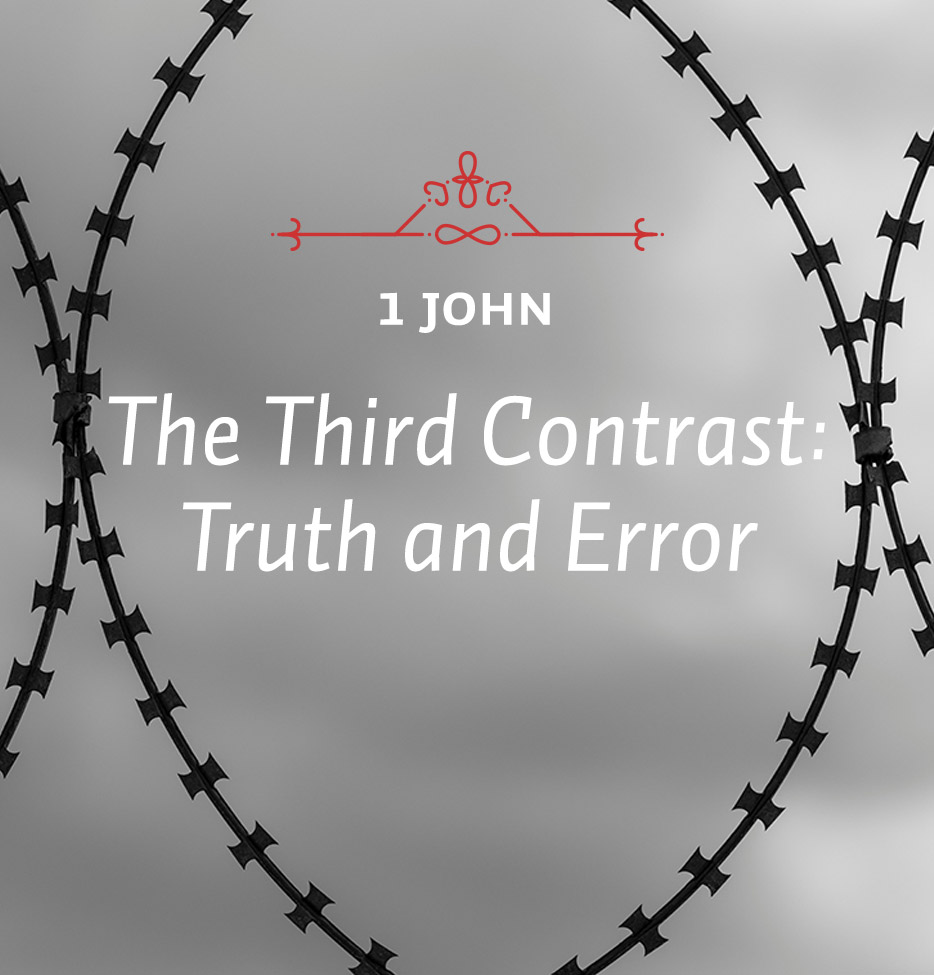One Sunday evening after I had preached to the congregation of Tenth Presbyterian Church in Philadelphia on the need to test Christian teaching by the Scriptures, a young man came up to me with a very interesting story. Two summers before he had been active in a summer music camp sponsored by one of America’s large universities. As a Christian he had longed for some effective Christian witness to the music students, and through the help of other Christian students and with permission of the university officials he was enabled to begin a Bible study group and a Sunday worship service. In his judgment it was quite effective. At any rate, quite a few of the students became Christians.
The following summer the work was begun anew and with high expectations, for the students had learned that the new conductor of the student orchestra was also a professing Christian. The young man who was telling me the story indicated that he had invited the conductor to the Bible study and services and asked him to take part. Unfortunately, the conductor did more than take part. He took over! Then he turned the meetings into an expression of a rather extreme form of Christian worship in which many so-called “charismatic gifts” were evident. The effect, far from being good, was divisive. The fellowship of the Christians was destroyed. Many open doors were closed. Eventually, because of the excesses, university officials banned all Christian meetings from the summer campus.
The conductor felt that he had been persecuted; and when the young man protested that he had carried on a Christian work for the whole preceding summer without any harassment, he was told that this was because he had not been sufficiently bold or spiritual in his testimony. The young man wanted to know what I thought. It seemed to him that the work had been ruined unnecessarily. But was he right? Perhaps he really was not spiritual enough? If he was sufficiently filled with the Holy Spirit, would he not have found himself more in sympathy with the orchestra conductor?
I gave the young man some guidelines, much along the lines of the various tests of life that we have been studying from 1 John. But I tell the story, not for the sake of my response, but to make the point that the problem we are about to consider from John’s time is not unique to his time, but is found in our own age also.
We do not know precisely what was happening to the churches to whom John was writing, of course. We know that at the very least there was a schism in which those who professed to have greater knowledge in spiritual matters withdrew from the original Christian assembly. Did they go out professing to have received a higher or purer revelation of the truth than had the others? We do not know. But it is not hard to imagine that as they left they would have pretended to be more in tune with the leadings of the Holy Spirit or more obedient to Him. In addition to this, it may also have been the case that what they said and did (and perhaps also what others said and did) was accompanied by various supernatural phenomena such as speaking in tongues or the performing of miracles. At least we know that such phenomena took place in other churches and by other individuals. What were the Christians to do in such circumstances? Did supernatural phenomena automatically authenticate the ones performing them? Some must have thought so, for when John begins the fourth chapter of his letter by saying, “Beloved, believe not every spirit, but test the spirits whether they are of God,” he implies indirectly that some were at least tending to accept whatever teaching claimed to be given under such supposed inspiration.






